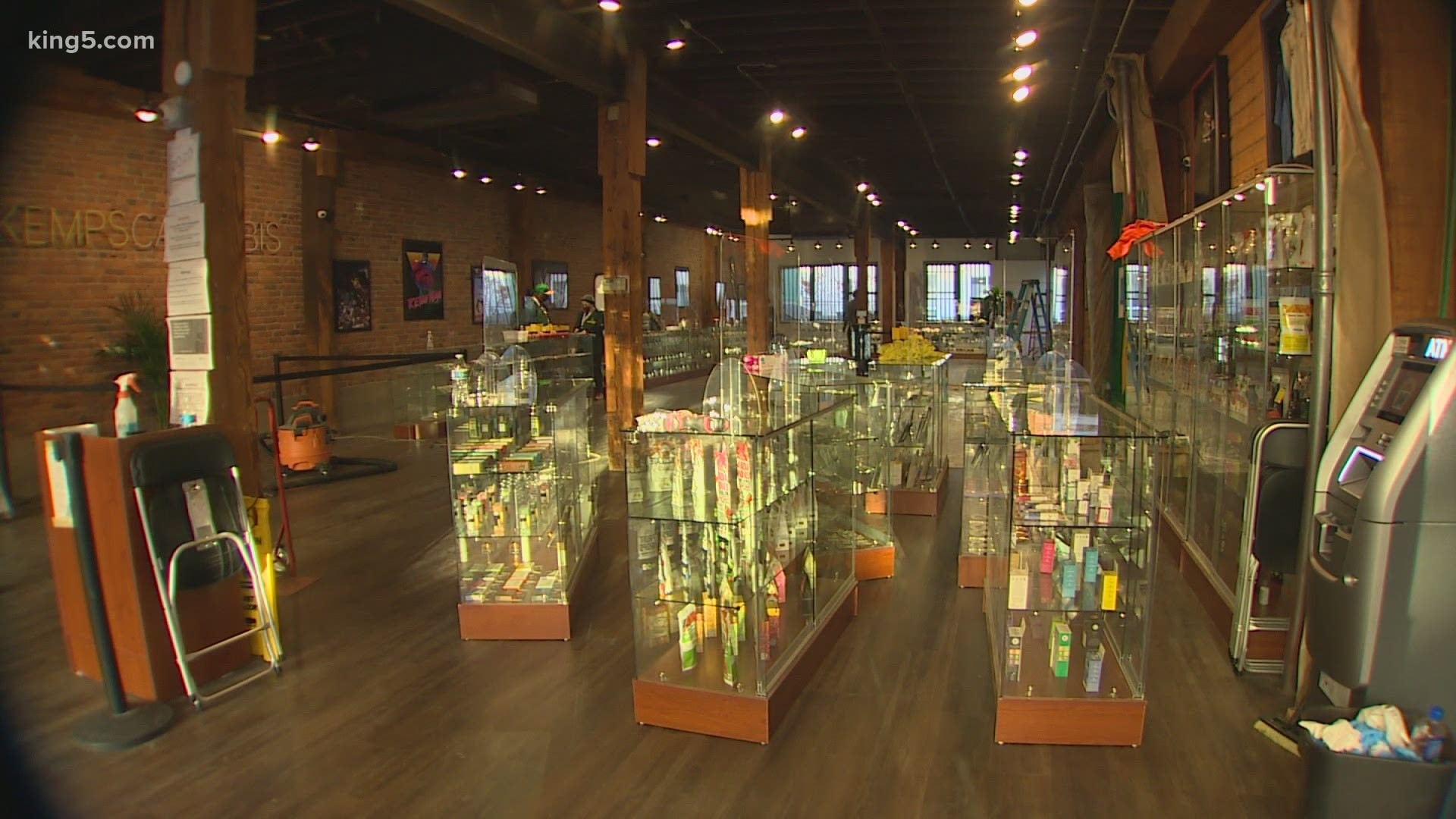SEATTLE — The Washington State Liquor and Cannabis Board (LCB) says it has issued 556 licenses for marijuana processors and retailers across the state.
Seattle has 50 marijuana shops, but none of them have a majority Black owner.
A new marijuana shop opening Friday near the Space Needle will feature the name of Sonics legend Shawn Kemp, but there was a bit of controversy over his role within the shop.
Earlier this week, the public relations team behind Shawn Kemp’s Cannabis sent a press release touting it as Seattle's first black-owned dispensary. However, Kemp only has a 10% stake. The team later sent another release saying they regret the confusion and “unfortunate wording and misstep of the press release.”
“One of the things that we've been hearing for years now was that those that were harmed, disproportionately harmed by the war on drugs, were believed to be left out of the system,” said Brian Smith with the LCB.
Smith said the LCB is aware of complaints about the disparity of who was granted licenses. When licenses were initially handed out, it was done via a double-blind lottery.
“A city can set up a zoning, or something along those lines, and put them in a pocket, but they don't necessarily get in the way of who gets what location, you know, based on their race or their identity,” said Smith.
Historically, Black people have been disproportionately impacted by marijuana arrests compared to white people. A 2018 UW study shows that, even after legalization in Washington state in 2012, Black people are nearly four times more likely to be arrested for marijuana compared to white people.
This year, a social equity bill became law and out of that, a task force was created with representatives from the state, LCB, and communities of color to establish criteria for handing out additional licenses.
“We have about 35 licenses right now that were either from a discontinued business, or they're from a community where no one applied for it,” he said.
Smith said the LCB has been learning from other states who have tried to implement more social equity among those who operate marijuana shops.
“It's an evolution," said Smith. "We learned some things along the way. Now we're moving forward in a direction that I think is a positive for just about everyone."

